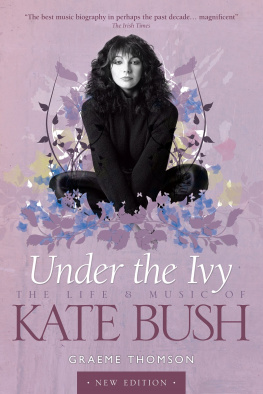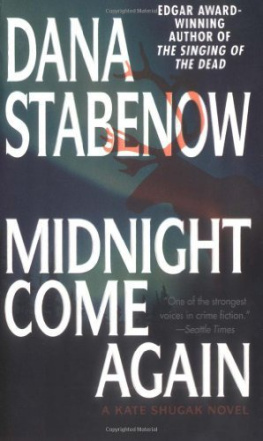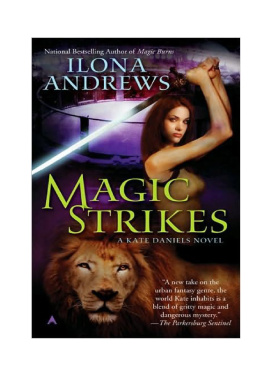Plain Kate
erin bow
arthur a. levine books
an imprint of scholastic inc.
Copyright 2010 by Erin Bow
Jacket art 2010 by Juliana Koleslova
All rights reserved. Published by Arthur A. Levine Books, an imprint of Scholastic Inc., Publishers since 1920. scholastic and the lantern logo are trademarks and/or registered trademarks of Scholastic Inc.
No part of this publication may be reproduced, stored in a retrieval system, or transmitted in any form or by any means, electronic, mechanical, photocopying, recording or otherwise, without written permission of the publisher.
For information regarding permission, write to Scholastic Inc., Attention: Permissions Department, 558 Broadway, New York, NY 10012.
Library of Congress Cataloging-in-Publication Data
Bow, Erin.
Plain Kate / by Erin Bow.1st. ed.
p. cm.
Summary: Plain Kates odd appearance and expertise as a woodcarver cause some to think of her a witch, but friendship with a talking cat and, later, with humans help her to survive and even thrive in a world of magic, charms, and fear.
ISBN 978-0-545-16664-5 (hardcover : alk. paper)
[1. Fantasy. 2. Wood carvingFiction. 3. CatsFiction. 4. Human-animal relationshipsFiction. 5. WitchcraftFiction. 6. MagicFiction. 7. OrphansFiction.]
I. Title.
PZ7.B67167Pl 2010
[Fic]dc22
2009032652
Printed in the U.S.A. 23
First edition, September 2010
Book design by Lillie Howard
The author gratefully acknowledges the support of the Ontario Arts Council
To the memory of my sister Wendy
artist, friend, and fierce good soul
contents
one: The Skara Rok
two: The Stranger
three: The Fish, the Axe, and the Bargain
four: The Roamers
five: The Road and the Rain
six: Secrets and Roses
seven: Toila
eight: The Bog Camp
nine: The Bear Cage
ten: The Punt, the Pool, and the Empty Road
eleven: A Ghost in the River
twelve: Fog
thirteen: Shadow
fourteen: Blood and Questions
fifteen: The Abandoned Country
sixteen: The Peace of Lov
seventeen: The Stone City
eighteen: An Exchange of Gifts
nineteen: The Names of the Dead
one
the
skara rok
A long time ago, in a market town by a looping river, there lived an orphan girl called Plain Kate.
She was called this because her father had introduced her to the new butcher, saying: This is my beloved Katerina Svetlana, after her mother who died birthing her and God rest her soul, but I call her just plain Kate. And the butcher, swinging a cleaver, answered: Thats right enough, Plain Kate she is, plain as a stick. A man who treasured humor, especially his own, the butcher repeated this to everyone. After that, she was called Plain Kate. But her father called her Kate, My Star.
Plain Kates father, Piotr, was a wood-carver. He gave Kate a carving knife before most children might be given a spoon. She could whittle before she could walk. When she was still a child, she could carve a rose that strangers would stop to smell, a dragonfly that a trout would rise to strike.
In Kates little town of Samilae, people thought that there was magic in a knife. A person who could wield a knife well was, in their eyes, halfway to a witch. So Plain Kate was very small the first time someone spat at her and crooked their fingers.
Her father sat her down and spoke to her with great seriousness. You are not a witch, Katerina. There is magic in the world, and some of it is wholesome, and some of it is not, but it is a thing that is in the blood, and it is not in yours.
The foolish will always treat you badly, because they think you are not beautiful, he said, and she knew this was true. Plain Kate: She was plain as a stick, and thin as a stick, and flat as a stick. She had one eye the color of river mud and one eye the color of the river. Her nose was too long and her brows were too strong. Her father kissed her twice, once above each eyebrow. We cannot help what fools think. But understand, it is your skill with a blade that draws this talk. If you want to give up your carving, you have my blessing.
I will never give it up, she answered.
And he laughed and called her his Brave Star, and taught her to carve even better.
They were busy. Everyone in that country, no matter how poor, wore a talisman called an objarka. Those who could, hung larger objarka on horse stalls and doorposts and above their marriage beds. No lintel was uncarved in that place; walls bore saints in niches; and roads were marked with little shrines on posts, which housed sometimes saints, and sometimes older, stranger things. Plain Kates father was even given the honor of replacing Samilaes weizi, the great column at the center of the market that showed the towns angels and coat of arms, and at the top, supported the carved wooden roof that sheltered the carved wooden gods. The new weizi was such a good work that the guild masters sent a man from Lov to see it. The man made Kates father a full master on the spot.
My daughter did some of the angels, he told the man, gathering Kate up and pulling her forward.
The man looked at the faces that were so beautiful they seemed sad, the wings that looked both soft and strong, like the wings of swans that could kill a man with one blow. Apprentice her, he said.
If she likes, Piotr answered. And when she is of age.
When the guild man went away, Plain Kate chided her father. You know I will be your apprentice!
You are the star of my heart, he said. But it is two years yet before you are of prenticing age. Anything might happen.
She laughed at him. What will happen is that I will be a full master by the time I am twenty.
But what happened was that her father died.
It happened like this: The spring swung round into summer, full of heat and flies. The wheat crop whithered. The first frosts came and found food already short. And then a sickness called witchs fever ate through the town.
At first, Plain Kate and her father were too busy to worry. People wanted new objarkasome wore so many of the carved charms that they clacked softly when they moved. They carved all day, and into the night by the bad light of tallow lamps. They carved faster than they could cure the wood. And then they grew even busier, because there were grave markers to make.
Witchs fever was an ugly thing. The sick tossed in their beds, burning up, sobbing about the devils that were pulling their joints apart. They raved of horrors and pointed into shadows, crying, Witch, witch. And then they died, all but a few. It seemed to Plain Kate that even those who were not sick were looking into shadows. The cressets in the market squarethe iron nests of fire where people gathered to trade news and roast fishbecame a place of hisses and silences. More fingers crooked at her than ever before.
But in the end it was not her the town pointed to. One day, when Plain Kate and her father were in the market square selling new objarka from their sturdy stall, a woman was dragged in screaming. Kate looked up from her whittling, and sawsuddenlythat there was wood for a bonfire piled around the weizi.
The screaming woman was named Vera, and Plain Kate knew her: a charcoal burner, a poor woman with no family, with a lisp from a twisted lip. The crowd dragged Vera to the woodpile, and Piotr picked Plain Kate up and swept her away, though she was too big for it. From their shop they could still hear the screaming. The next day the square was muted and scattered with ash.
And still the sickness ate through the crooked lanes and wooden archways. Plain Kate and her father stopped selling in the square. Their money grew short. The plague burned on and the town shut its gates. Carters stopped bringing food from the countryside; the barges stopped coming down the looping Narwe. Kate had her first taste of hunger.
Next page











